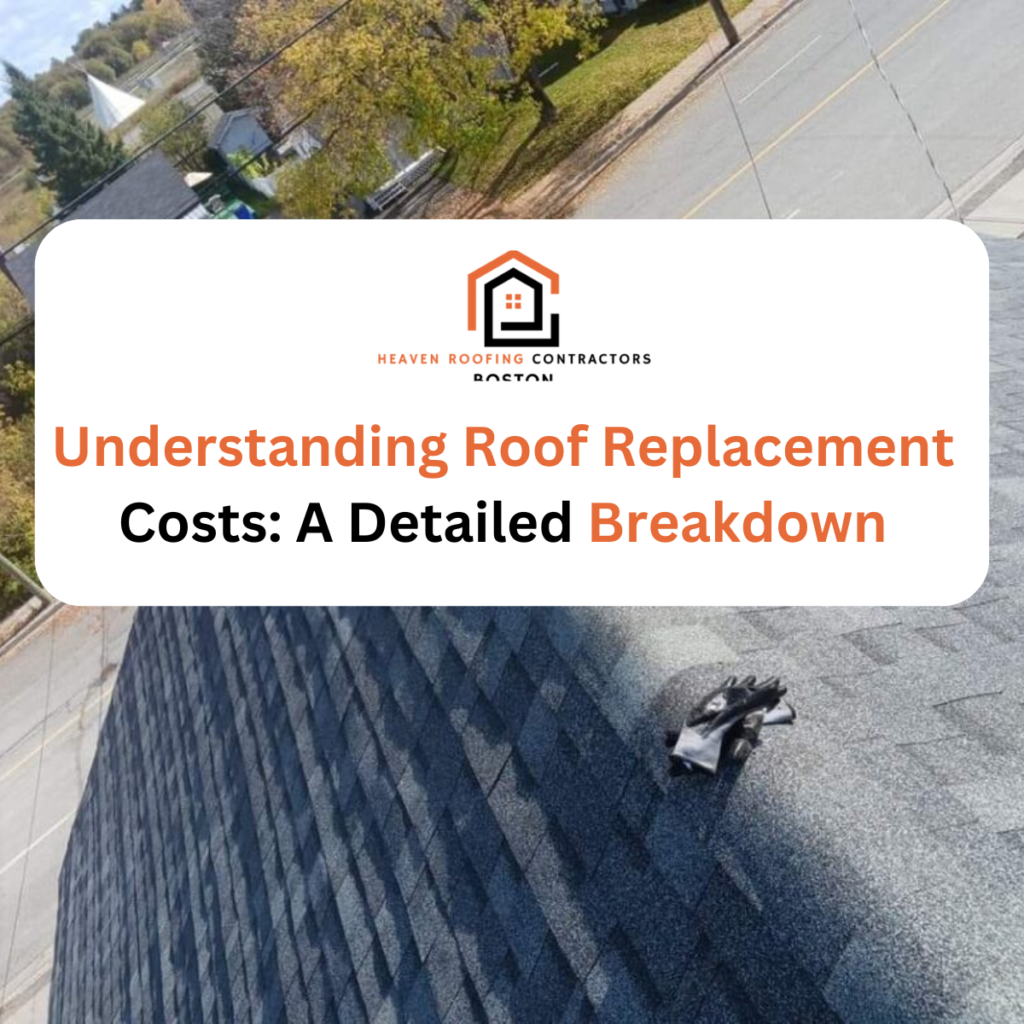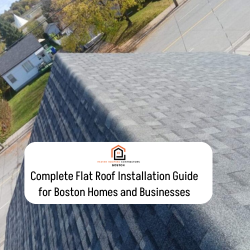Replacing a roof is a significant investment that every homeowner may face at some point. Understanding roof replacement costs, including the factors that influence them and the options available, is essential for anyone planning a roof replacement project. In this article, we’ll break down the various costs associated with replacing a roof, from materials and labor to additional factors such as roof pitch and size. We’ll also cover how regular roof inspections can help prevent costly repairs and prolong the life of your roof.
Factors Influencing Roof Replacement Costs
Roof replacement costs can vary significantly depending on several key factors. Here’s a breakdown of the main elements that impact the cost of replacing a roof:
Type of Roofing Material
The type of roofing material is one of the most significant factors influencing roof replacement costs. Common materials include asphalt shingles, metal roofs, tile, slate, and wood shingles. Each type of roofing material has its own price range:
- Asphalt Shingles: This is the most popular choice due to its affordability and durability. An asphalt shingle roof typically costs less than other options, but the price can vary depending on the quality of shingles.
- Metal Roofs: Metal roofing is known for its longevity and durability but comes at a higher cost than asphalt. The price for a metal roof can vary based on the type of metal used, such as steel, aluminum, or copper.
- Tile and Slate Roofs: These are premium options that offer a unique look and excellent durability. However, they come with a higher price tag due to the cost of materials and the complexity of installation.
Roof Size and Complexity
The size of your roof and its complexity are also significant factors in determining the cost of roof replacement. Larger roofs require more materials and labor, leading to higher costs. Additionally, roofs with complex designs, multiple levels, steep pitches, or unique shapes, such as a gable roof or hip roof, can lead to higher labor costs due to the increased difficulty of installation.
Roof Inspections and Repairs
Regular roof inspections are crucial for maintaining the integrity of your roof. Inspections help identify minor roof repairs that, if left unattended, could lead to more extensive and expensive damage. The cost of roof repairs is generally lower than the cost of a full roof replacement. However, if the roof is damaged beyond repair, a replacement may be necessary. In such cases, understanding the costs involved in roof replacement becomes vital.
Labor Costs
Labor costs can vary depending on the region, the roofing contractor’s experience, and the complexity of the roof. Replacing a roof on a single-story home with a simple roof design will generally cost less in labor than a multi-story home with a complex roof. Labor costs also increase with more challenging roof pitches, like those found in A-frame or steep-sloped roofs. When planning a roof replacement project, it’s essential to get quotes from multiple contractors to understand the labor costs involved.
Additional Costs to Consider
Several additional costs can impact the overall cost of a roof replacement. These include:
- Roof Deck Repairs: If your old roof was damaged or the roof deck has rotted, it will need to be repaired or replaced before installing a new roof.
- Permits and Inspections: Local regulations may require permits for roof replacement, adding to the overall cost.
- Disposal Costs: Removing the existing roof can incur additional costs for disposing of the old roofing materials.
- Underlayment and Flashing: Installing a new underlayment or replacing roof flashing can add to the cost of roof replacement.
Cost Breakdown for Roof Replacement
Understanding the costs involved in roof replacement is crucial for budgeting. Here’s a detailed breakdown:
Material Costs
The cost of roofing materials varies based on the type of material selected. The cost for asphalt shingles is generally the lowest, while metal, tile, and slate roofs can significantly increase the cost. Material costs typically account for 40-50% of the total cost of roof replacement.
Labor Costs
Labor costs can range from 40% to 60% of the total cost. This includes the removal of the old roof, installation of the new roof, and cleanup. The labor cost is also influenced by the roof’s complexity, pitch, and accessibility.
Additional Costs
Additional costs may include the price of permits, roof inspections, and disposal fees. These costs can vary based on location and specific project needs. It’s essential to factor these into the total cost when planning a roof replacement.
Average Roof Replacement Costs
The average cost of roof replacement varies widely based on the factors mentioned above. Here’s a rough estimate of what you can expect for different roofing materials:
- Asphalt Shingle Roof: $5,000 – $12,000
- Metal Roof: $10,000 – $25,000
- Tile Roof: $15,000 – $30,000
- Slate Roof: $20,000 – $50,000
Keep in mind that these figures are averages, and the actual cost can vary depending on the size of the roof, complexity, and other factors.
DIY Roof Replacement vs. Hiring a Professional
Embarking on a roof replacement project is a significant undertaking. While some homeowners may consider a DIY roof replacement to save on labor costs, it is essential to understand the risks involved. Roofing is a complex task that requires specialized knowledge and tools. Hiring a professional roofing contractor ensures that the job is done correctly and safely.
Benefits of Hiring a Professional Roofing Contractor
- Expertise and Experience: Professional roofers have the skills and experience to handle all types of roofing systems.
- Safety: Roofing can be dangerous, especially on steep roofs. Professionals have the necessary safety equipment and training.
- Warranty and Insurance: Most roofing contractors offer warranties on their work and carry insurance, providing peace of mind in case of any issues.
Conclusion
Understanding roof replacement costs and the factors influencing them is vital for any homeowner considering this significant investment. By knowing what to expect and planning accordingly, you can make informed decisions and choose the best options for your home. Regular roof inspections can help identify potential issues early, potentially saving you from costly repairs or a full roof replacement. If you’re planning to replace your roof, consider all the factors discussed in this article and consult with a professional roofing contractor to get a detailed cost breakdown and ensure a quality roof replacement process.



